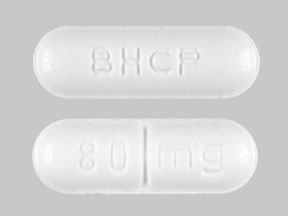
Betapace Af Coupons & Savings Card – Discount Prices from $921.36
My prescription
Edit
80MG, Betapace Af (60 Tablets)
Select pharmacy

CVS
$921.36
COUPON PRICE
Walmart
$926.77
COUPON PRICE
Albertsons
$927.92
COUPON PRICE
Walgreens
$937.76
COUPON PRICEBetapace Af savings card
Show this card to your pharmacist
CVS
$921.36
BIN
ID
PCN
GRP
015995
LHKPV523642
GDC
DR33
Powered by
More prescriptions for ventricular arrhythmia
More prescriptions for ventricular arrhythmia
Price history for Betapace Af
60 Tablets, 80MG
Average retail price for Betapace Af
Average SaveHealth price for Betapace Af
Our price history data is based on aggregated prescription data collected from participating pharmacies in America. Our prescription data updates daily to reflect the latest price changes. If you notice a missing data point, it means there wasn't sufficient data available to generate a monetary value for that date.
*Retail prices are based on pharmacy claims data, and may not be accurate when we don't have enough claims.
Betapace Af dosage forms
Dosage Quantity Price from Per unit 80MG 60 Tablets $926.77 $15.45 120MG 60 Tablets $1242.99 $20.72 160MG 60 Tablets $1559.03 $25.98
| Dosage | Quantity | Price from | Per unit |
|---|---|---|---|
| 80MG | 60 Tablets | $926.77 | $15.45 |
| 120MG | 60 Tablets | $1242.99 | $20.72 |
| 160MG | 60 Tablets | $1559.03 | $25.98 |
What's the difference between Betapace and Betapace AF?
Betapace and Betapace AF both contain the active ingredient sotalol, which is used to treat certain types of irregular heartbeats. The primary difference between the two is their approved uses and labeling. Betapace is primarily used for treating ventricular arrhythmias, while Betapace AF is specifically labeled for the treatment of atrial fibrillation or atrial flutter. Additionally, Betapace AF includes specific instructions and warnings related to the management of atrial fibrillation, which are not included in the Betapace labeling. It is important for patients to use the medication as prescribed by their healthcare provider, considering these distinctions.
What is the common side effect of sotalol?
A common side effect of sotalol is fatigue. Other possible side effects include dizziness, headache, and nausea. It is important for patients to discuss any side effects with their healthcare provider.
What foods should be avoided when taking sotalol?
When taking sotalol, it is advisable to avoid foods and beverages that are high in caffeine, such as coffee, tea, cola, and chocolate, as caffeine can potentially interfere with the effectiveness of the medication. Additionally, it is important to maintain a consistent intake of potassium-rich foods, as fluctuations in potassium levels can affect how sotalol works. Always consult with a healthcare provider for personalized dietary recommendations while on sotalol.
What are the bad side effects of sotalol?
Sotalol can cause several side effects, some of which may be serious. Common side effects include fatigue, dizziness, and headache. More serious side effects can include a slow or irregular heartbeat, chest pain, fainting, and shortness of breath. It may also cause low blood pressure and can lead to a condition called torsades de pointes, a type of life-threatening arrhythmia. Patients should contact their healthcare provider if they experience any severe or concerning symptoms.
What is sotalol hydrochloride AF?
Sotalol hydrochloride AF is a formulation of the medication sotalol, which is used to treat certain types of irregular heartbeats, such as atrial fibrillation. The "AF" in the name indicates that this specific formulation is intended for use in managing atrial fibrillation. It works by helping to restore normal heart rhythm and maintain a regular, steady heartbeat.
